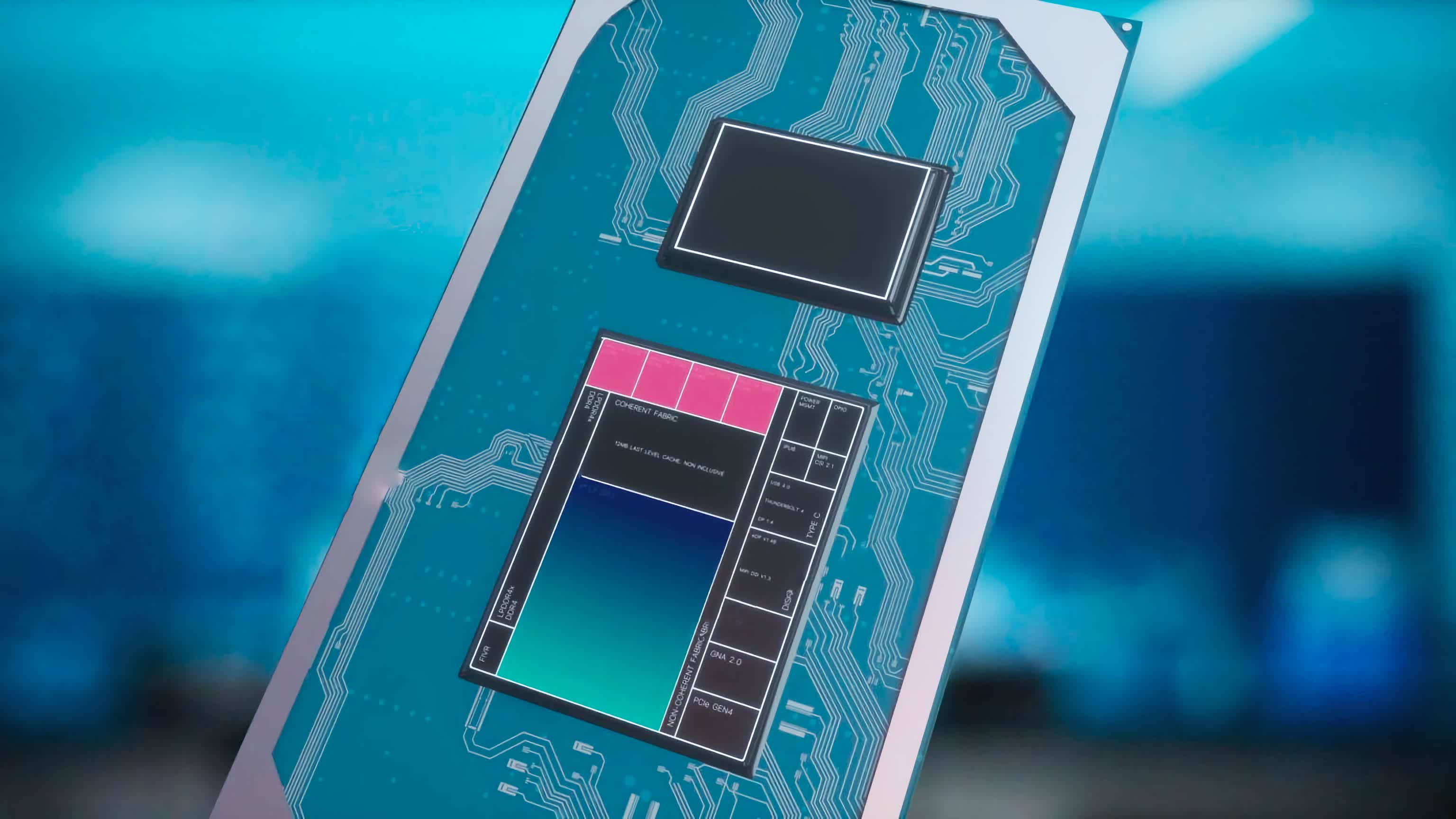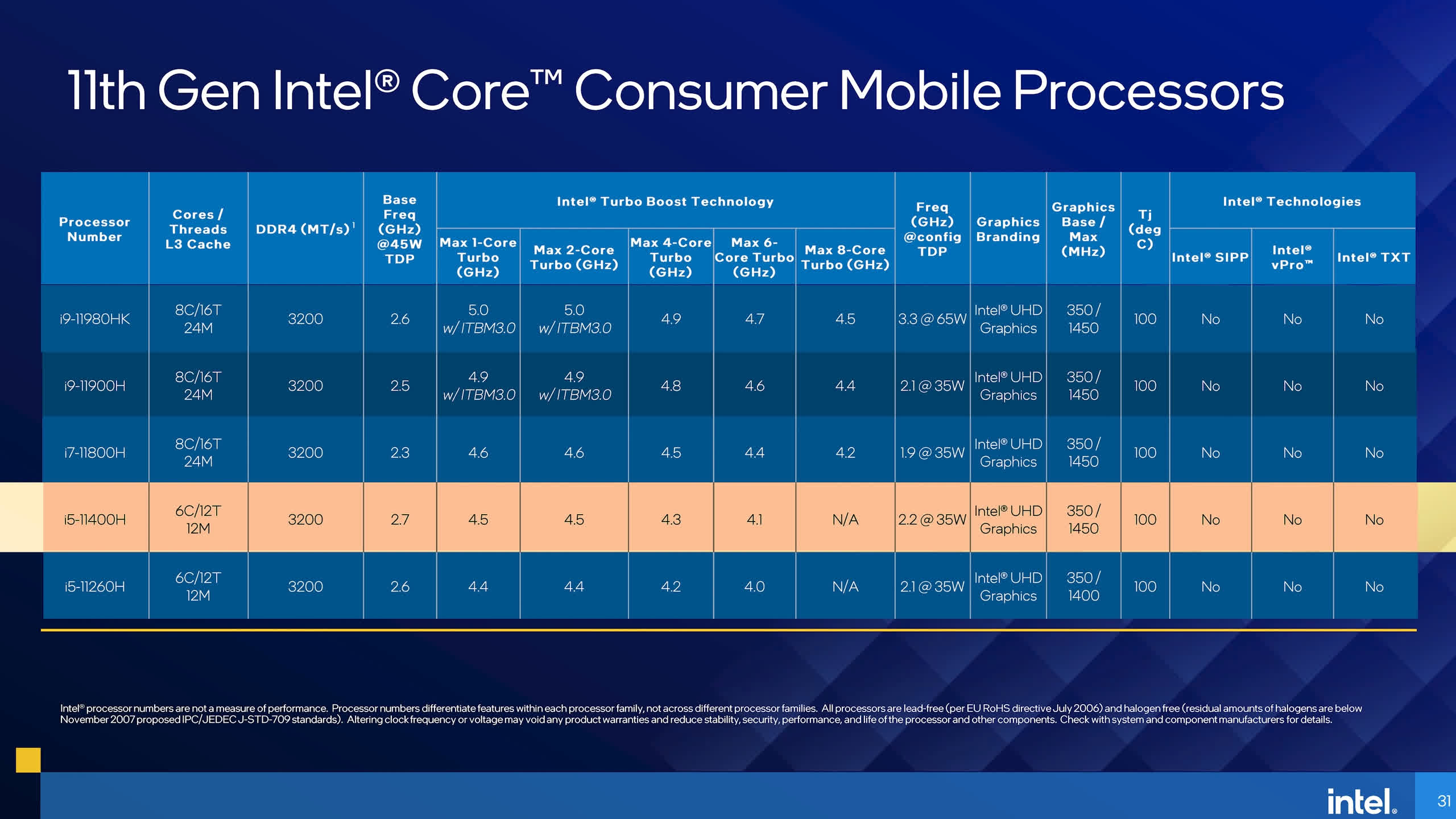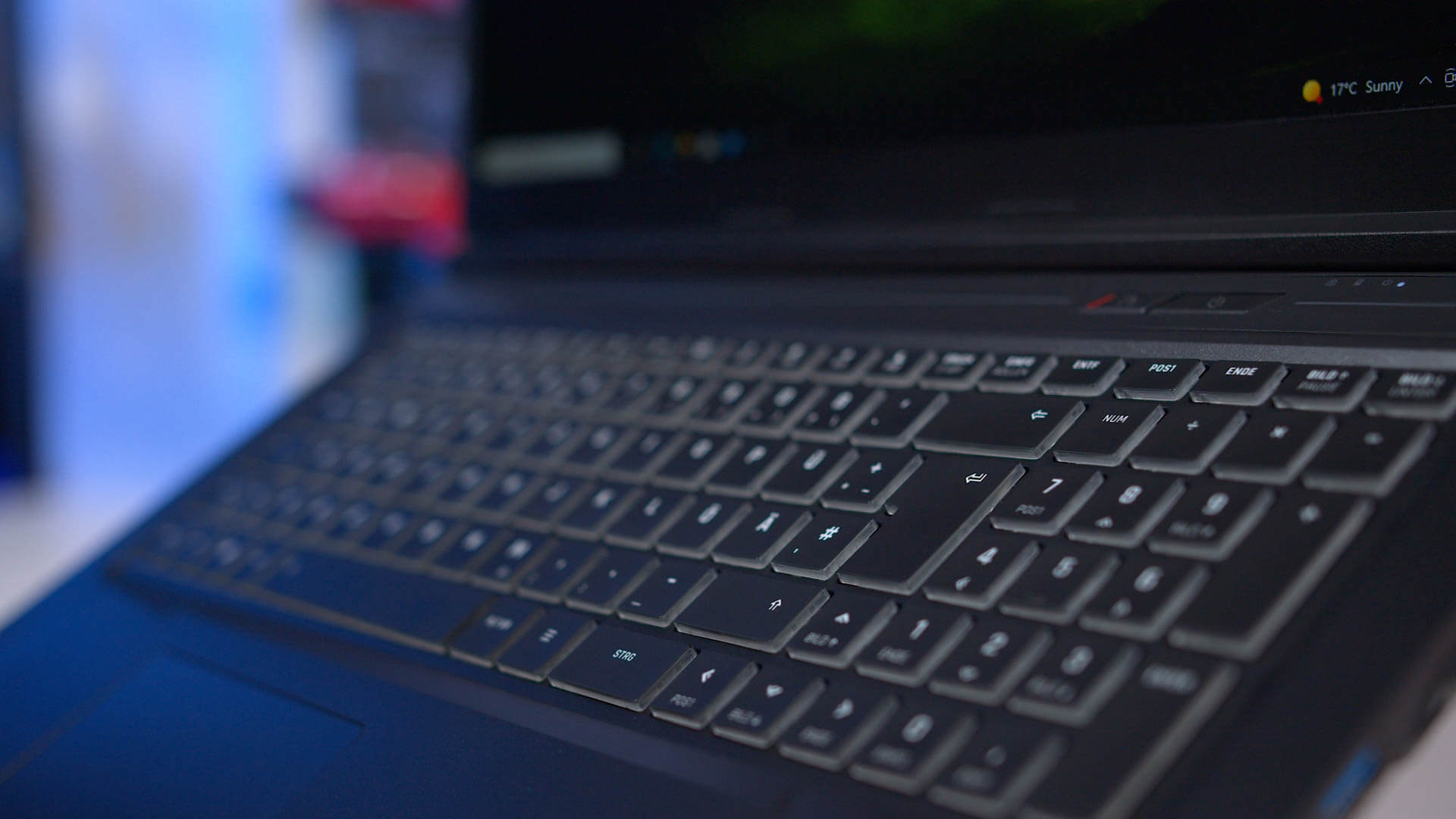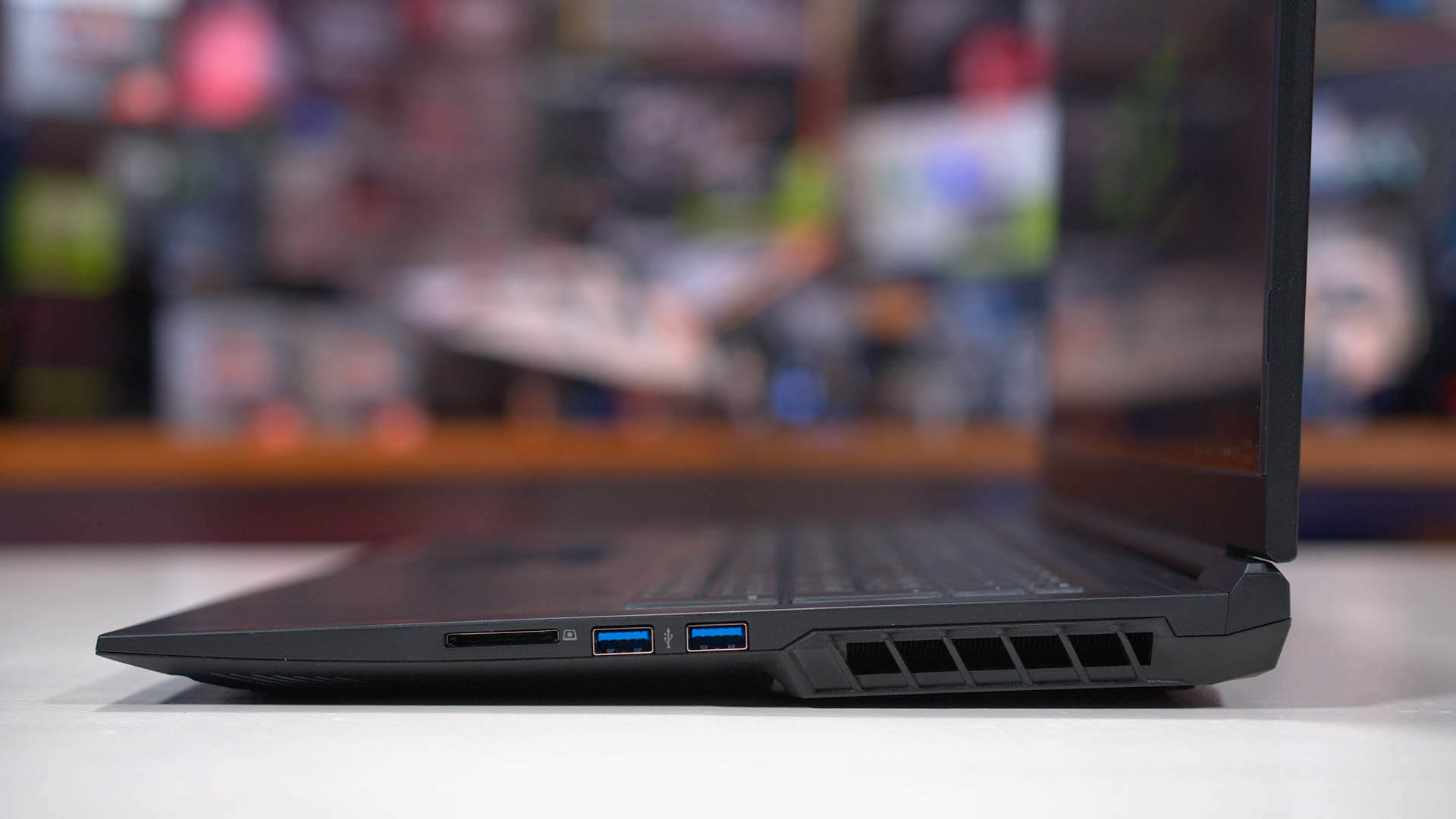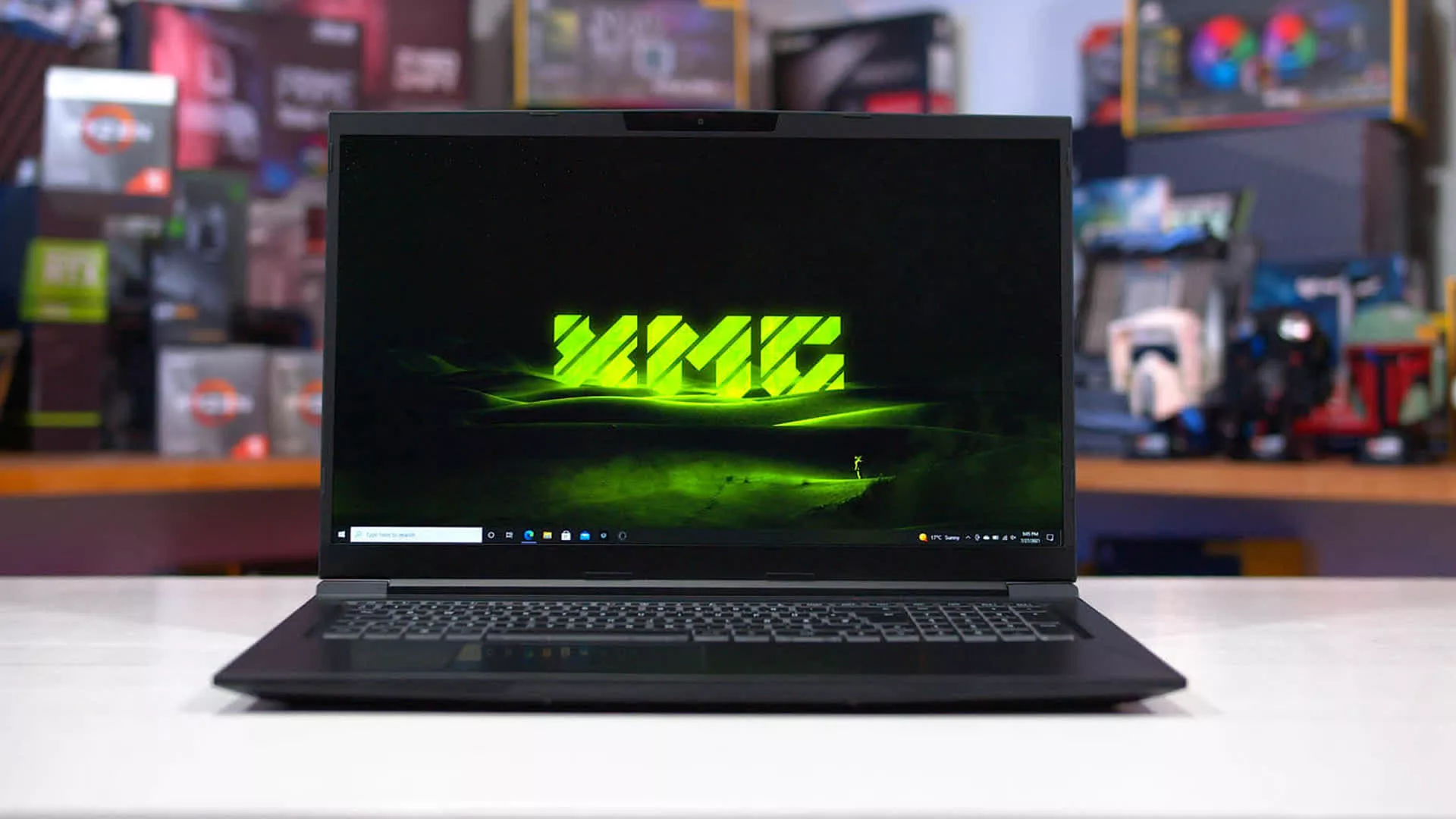The Core i5-11400H mobile CPU comes as a direct competitor to AMD's Ryzen 5 5600H, which means it's used across many mainstream, affordable laptops usually offered as the entry-level option in many popular laptop series. If you don't want to grab a Core i7-11800H, which we've already reviewed, then what is the Core i5-11400H bringing to the H-series CPU segment?
The i5-11400H is a Tiger Lake H45 processor, so it comes with all the architectural upgrades we've talked about before: 10nm SuperFin process, Tiger Lake architecture with improvements to cache sizes, clock speeds, and efficiency, plus new features like support for PCIe 4.0. It also comes with an integrated Xe GPU, though the GPU has been cut down significantly compared to top end Tiger Lake models.
Unlike the Core i7 and Core i9 models which pack 8 cores, the Core i5-11400H uses a cut down version with 6 cores and 12 threads, along with 12 MB of L3 cache. The base clock at 45W is higher as it doesn't need to be split across as many cores, sitting at 2.7 GHz, however boost clocks are also reduced relative to higher end models. The 11400H tops out at 4.5 GHz single core and 4.1 GHz all-core.
What Intel has left out of this chart are exact GPU specifications. You'll see here that it's listed as having UHD Graphics with the same clock speeds as other processors, but what Intel isn't telling you is that the Core i5 model has just 16 execution units in its Xe GPU, compared to 32 on higher tier models. This means the 11400H requires a discrete GPU to get adequate graphics performance.
The test system for today's review is the XMG Core 17, the same sort of laptop we've been using for our latest look into the GeForce RTX 3050 and RTX 3050 Ti. However we should mention that this Core 17 version is a review sample only, as XMG has decided to launch only higher spec models with GPUs such as the RTX 3060, at least for now.
Internally, there is an Intel Core i5-11400H processor and 16GB of dual-channel DDR4-3200 memory, good quality stuff that doesn't hinder performance. There's also a 1080p 144Hz IPS display and 1TB of SSD storage in this review unit. As for the discrete GPU, it's a GeForce RTX 3050 that runs at between 80 and 95W with dynamic boost enabled, the highest configuration Nvidia allows for this part.
As with all of our previous laptop testing, benchmarks have been conducted at the processor's default TDP which for Intel H-series parts is 45W, allowing for apples-to-apples comparisons across all the CPUs we've tested.
Boost behavior is left unchanged. We'll also be looking at power scaling later on, so you can see how higher power configurations available with some laptops compare. Results in the charts are an average of benchmarks taken with the same configuration, the full list of laptops used for testing is available here. On to the charts...!
Benchmarks
Starting out with Cinebench R20 multi-threading, it's not bad of a result for the Core i5-11400H. We're already seeing performance only just shy of the last-generation Core i9-10980HK and above that of AMD's Ryzen 5 4600H, however the result still falls a little short of the newer Ryzen 5 5600H.
All up, the 11400H ends up 8 percent slower than the 5600H and quite a substantial 19 percent slower than the 11800H, indicating that Intel's eight-core design is a decent amount more efficient despite the same 45W power limit.


With the Core i5-11400H being limited to just 4.5 GHz on a single core, it's no surprise to see it perform below that of other Tiger Lake processors, as this turbo clock is the lowest of any model I've tested so far. In fact it's a double whammy, as not only is the clock speed lower, but the 11400H also only has half the L3 cache of the 11800H, so in total performance is down 4 percent in this benchmark. However this is still enough for the 11400H to beat the Ryzen 5 5600H, to the tune of 5 percent.

In Handbrake video encoding, the 11400H's performance is quite similar to what was shown in Cinebench multi-threading. The 11400H is slightly faster than the Ryzen 5 4600H, and slightly slower than the Core i9-10980HK. Compared to current generation processors that puts it 5 percent behind the Ryzen 5 5600H at 45W, and 13 percent behind Intel's Core i7-11800H.

In Blender, the 11400H doesn't perform quite as well as in Handbrake, now just matching the 4600H in this test. This puts performance 8 percent behind the Ryzen 5 5600H and 17 percent behind the Core i7-11800H, so these sorts of heavy multi-threading workloads aren't the best on this Tiger Lake six-core processor.

However in a workload like Chromium code compilation, it's a bit different. The 11400H performs quite well here, slightly outperforming the Ryzen 5 5600H and on-par with last-generation eight core processors. While this is a strong result comparing Core i5 to Ryzen 5, performance is still 19 percent slower than the Core i7-11800H, so there's plenty of reason to get the Core i7 model if you need more processing power.

Matlab is another good result for the Core i5-11400H. The Tiger Lake processor is only marginally behind other models in the line-up, allowing it to outperform every Ryzen 5000 processor in this short test. This comes down a combination of factors and Intel CPUs tend to be quite strong in these sorts of burst workloads that hit the high turbo frequencies on offer.

On the flip side, in Microsoft Excel, the Core i5-11400H suffers heavily due to the reduction in L3 cache from 24MB with higher tier models to just 12MB with this model. Performance is down over 30 percent compared to the 11800H as a result, and while this is still competitive with the Ryzen 5 5600H - just 3 percent slower - in the eight-core bracket this benchmark was a much more resounding win to Intel.

7-Zip Compression also appears to suffer from the reduction in cache with the 11400H, along with lower boost frequencies compared to other Intel processors. The result is still better performance than the 5600H, although the margin is a narrow 4%, however it doesn't really get near the eight-core parts like the 11800H or 5800H.

Then in decompression, the 11400H can't keep up with any of AMD's Ryzen processors. This is a very strong benchmark for AMD, so performance is even a little bit lower than the 4600H, and 17 percent behind the 5600H. We're also seeing a 27 percent reduction on the 11800H which benefits from more cache, more cores and higher frequencies.

In Acrobat PDF exporting, the Core i5-11400H performs very similarly to both the Ryzen 5 5600H and Ryzen 7 5800H, we're talking about just a few percent either way. However performance is 6 percent slower than the 11800H in this heavily single-threaded benchmark.

Then we get to Adobe Photoshop with the Puget Systems workload. The Core i5-11400H isn't a bad performer, but results are quite similar to the battle between the 5800H and 11800H, in that the Ryzen processor (the 5600H) is marginally faster. With that said the difference isn't very significant, so you can expect basically the same Photoshop performance whether you get a 5600H or an 11400H, with only higher end parts providing a more substantial difference.

Lastly a quick look at Adobe Premiere exporting, where the Ryzen 5 5600H and Core i5-11400H perform pretty similarly, nothing too surprising and clearly this makes it far superior than Intel's supposedly "Core i7" model in the 11370H which is just a quad core and doesn't perform well at all despite having an RTX 3070 GPU.
Gaming Benchmarks
Next up we're going to show just a few gaming benchmarks, the results don't tell us a whole lot as the GPU we're using is the RTX 3050 which doesn't provide us with much of a CPU bottleneck in games. However, lower-end GPUs are more likely to be paired with a mainstream CPU such as the Core i5-11400H, and we can compare this apples-to-apples with a Core i7-11800H configuration with the same GPU to see if there are any differences.

In Shadow of the Tomb Raider, the two RTX 3050 Laptop GPU configurations deliver similar performance, although the Core i5-11400H system is slightly slower, in both average and 1% lows. The 1% low figure is 6 percent lower on the Core i5 system, but average frame rates are just 2 percent behind.

Next up we have Resident Evil 2 running at 1080p using Balanced settings and again there just isn't much between the 11800H and 11400H in this test. At most we're seeing a 4% difference when comparing 1% lows, with the 11400H as the slower system.

Again very similar in Borderlands 3, the 11400H configuration is 3 percent slower in average frame rates, and 6 percent slower in 1% lows, which is about expected in this sort of game with the differences between the two CPUs. Nothing overly concerning.


In Rainbow Six Siege I was able to report the same performance with the RTX 3050 and Core i5-11400H as I was with the Core i7-11800H. There were several other titles like this where performance is practically unchanged, including in Cyberpunk 2077 as one example where the game simply overwhelms the RTX 3050 GPU running at these sorts of quality settings.

I could go on with these sorts of examples where performance is within a few percent, but instead I'll skip straight to one of the largest margins which was in Hitman 3 using the CPU heavy Dartmoor benchmark.
In this test, I saw the largest difference in average frame rates, the 11400H was 6 percent slower than the 11800H, and a large 15% slower in 1% lows. When you have a game that can make use of the additional CPU cores on offer in the 11800H, along with its improved efficiency and higher clock speeds, some games can benefit even with an RTX 3050, though this is an outlier.
Drawing Comparisons
There's really not much to say about the gaming performance of the 11400H, at least with these configurations.
On average the 11400H was under 2 percent slower which is negligible, and even with 1% lows we're only seeing a 4% difference on average which is hardly cause for concern.
You will see larger margins with higher GPU configurations, but like I said I don't expect too many systems to be pairing a Core i5-11400H with something like an RTX 3080 Laptop GPU.


Then when looking at productivity performance, it's no surprise to see a larger margin between the Core i5-11400H and Core i7-11800H.

Heavily multi-threaded tests are upwards of 15% slower on the six-core model as it simply doesn't have the core count or efficiency to compete. Lightly threaded tests are also slower, and where the 11400H really gets punished is in anything that utilizes cache, which is halved on this model compared to the Core i7 line.

This is really only relevant for those looking at whether the 11800H or 11400H is a better value buy though. The real battle is between the 11400H and AMD's Ryzen 5 5600H, which is looking like a very tight competition at 45W.
In longer, heavily multi-threaded workloads, the AMD CPU does have the advantage, however in the majority of these cases the 11400H is less than 10 percent slower. Meanwhile in more lightly threaded applications, the two parts end up very close.
In Cinebench, for example, the 11400H is less than 5 percent faster and the two models trade blows in an application like Photoshop. Then there are some benchmarks that more strongly favor Intel, like MATLAB.

When compared to a previous generation part like the Ryzen 5 4600H, the Core i5-11400H is clearly the better processor.
Single-thread performance is miles ahead with the Tiger Lake design, and multi-thread performance is generally either even or slightly ahead with the 11400H as well. On a pure performance perspective, you'd want the 11400H over the 4600H in your budget laptop.
Impressively, the Core i5-11400H isn't too far off the Core i9-10980HK, which I think highlights the large jump in performance that Intel has made this generation.

Impressively, the Core i5-11400H isn't too far off the Core i9-10980HK, which I think highlights the large jump in performance that Intel has made this generation. The 11400H doesn't always beat the prior generation eight-core flagship model, but it does get close in some workloads, particularly those that can benefit from Tiger Lake's superior IPC and larger cache.
Power Scaling
In this final section of our benchmarks, power scaling is where things get super interesting for the battle between the Core i5-11400H and Ryzen 5 5600H. At 45W, as we've shown in many of our multi-thread benchmarks, the Ryzen 5 5600H is generally the faster CPU, and that's true in this chart as well. But the gap closes and is totally nullified at 65W and above, with both the 5600H and 11400H delivering equivalent performance in this power range.
This is due to Tiger Lake's superior power scaling at higher power levels, as we've shown with previous models. The only limiting factor are all-core turbo frequencies, which like the 5600H level off at the maximum the CPU can do at around 70W.
If the 11400H's all-core turbo clock of 4.1 GHz was raised I expect the 11400H would easily beat the 5600H at higher power levels like 80W or more, but as it stands the best the 11400H can offer is equivalent performance.

Conversely, the 5600H is far superior at lower power ranges, such as when the TDP is configured down to 35W. What this means for laptop buyers is that in slimmer and lighter systems - think a 15-inch ultraportable with Max-Q type discrete graphics - the Ryzen 5 5600H is going to be either equal to or faster than the Core i5-11400H as we've shown throughout this review. However in beefier laptops, particularly higher spec gaming systems that have the cooling capacity to handle higher wattages, the Core i5-11400H is going to at worst match the Ryzen 5 5600H like in this scaling chart, or in most cases outperform it.
Of course, what is shown here doesn't apply to lightly threaded workloads, it doesn't apply as much to burst workloads and you'll also generally be limited to 45W or so in applications that use both the CPU and GPU (which is why it's the default TDP), but the advantage to the 11400H in CPU only workloads in systems with lots of cooling and higher power limits is clear.
What We Learned
Overall we're quite impressed with the Intel Core i5-11400H and honestly we think this is the best mobile CPU that Intel has produced in quite some time. It's the most competitive part we have with Ryzen 5000 APUs of the same class, and I think there's a strong case to be made that the 11400H is the better product.
In a head to head battle with the Ryzen 5 5600H, the Core i5-11400H trades blows depending on the application and what aspects to the CPU it's stressing. The 5600H does have the advantage at 45W in heavy multi-threading, but in most other tasks the 11400H is either close to the 5600H, or outperforms it. This advantage to Intel only grows at higher power limits, where the 11400H is able to close the gap in multi-threading to the point where the differences are negligible.
This Core i5 vs Ryzen 5 battle is much closer in performance than the Core i7 vs Ryzen 7 battles we've looked at previously
This Core i5 vs Ryzen 5 battle is much closer in performance than the Core i7 vs Ryzen 7 battles we've looked at previously, which are more in AMD's favor. The 11400H isn't an overwhelming winner, but things like the cache size and clock speeds are set to just the right amount to be very competitive without cannibalizing the Core i7-11800H which is still quite a bit faster.
The Core i5-11400H also provides a great platform for gaming, at least with the mainstream RTX 3050 we tested today, as the performance difference compared to higher tier CPUs is negligible.
On top of competitive performance with AMD, I feel the Core i5-11400H has the better platform and set of features. Intel offers 20 lanes of PCIe 4.0, while AMD is stuck on PCIe 3.0, a minor consideration though it might have some implications for storage performance, but there are bigger features such as Thunderbolt 4 support that do remain a key selling point for many. Intel also has better availability this generation, which is important in a supply constrained market, so it might be easier for you to find an 11400H laptop.
While I would generally prefer the Core i5-11400H over the Ryzen 5 5600H, there are some drawbacks. The 11400H's iGPU is weak, as bad as 10th-gen H-series parts and less than half as fast as the 5600H's iGPU. Pricing is another consideration, where generally Intel systems are more expensive than AMD. It's hard to compare pricing in the current market as there are wild differences between models and vendors, but in our observations we saw a 5 to 10% higher prices to go Intel in otherwise equivalent builds.
A small price difference is still fair, and with the 5600H frequently out of stock I'd be happy to pay that sort of margin to get a laptop that's immediately available. But if you're talking about needing to spend 10 or 15% more on Intel, then the value proposition diminishes considerably, though in this class it's certainly a very close battle and competition is always what we like to see.
